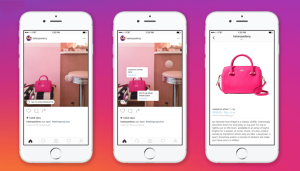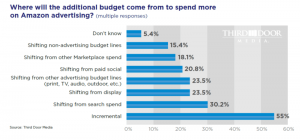Of course there was a Diet Mountain Dew ad during the vice presidential debate
Red, blue, and radioactive green.
Minnesota Governor Tim Walz and Senator JD Vance of Ohio are both Midwesterners running for the same job.
They’re also both fans of Diet Mountain Dew—making it the unofficial pop (that’s “soda” or “soft drink” for those outside the Midwest) of the vice presidential debate. And PepsiCo., its parent company, didn’t miss the opportunity to play into the news-making taste palettes of the candidates and advertise accordingly.
A pre-debate commercial showed security footage of a man delivering a cart full of Diet Mountain Dew backstage at the debate. When security tries to stop him, he says, “they asked for Diet Dew.” The brief 15-second ad ended with the message “VP Debate Starts Soon,” as if Mountain Dew was the spokesperson for the event itself.
At a time when many brands find current events too hot to touch, Diet Mountain Dew managed to insert itself into a political conversation in a way that was inclusive and not divisive, showing it’s still possible for brands to acknowledge news and politics in their advertising, while winking at its own 15 minutes of political fame.
“Many brands will want to advertise during debates because it’s obviously a high visibility event, but more strategically, it’s an opportunity to show neutrality—that their brand is for both sides and stands for something apolitical, a larger human truth or need that cuts across party lines,” says Dave Stein, Senior Partner at global creative consultancy Lippincott.
The late 2010s saw brands speaks out on social issues like equality, a trend that peaked in 2020 amid protests over racial justice following the death of George Floyd and amid the COVID-19 pandemic and a contentious presidential campaign. But brands have since experienced a marked depoliticization following conservative backlash and changing attitudes. A CNBC survey last year found 58% of Americans believe it’s inappropriate for companies to take a stand on issues compared to 32% who believe it is appropriate.
Diet Mountain Dew was lucky in that it didn’t have to take a stand on any issue of real cultural consequence in order to plug in to the current conversation around its product, making the move low-risk in terms of public perception, and potentially high reward in terms of engagement and brand lift. It was able to simply highlight its bipartisan appeal, which at least one politician has learned not to cross.
After Kentucky’s Democratic Governor Andy Beshear demeaned the drink in July, he winkingly walked it back during a subsequent press briefing. “To Diet Mountain Dew, very sorry, didn’t mean to say negative things about you,” he later said, cleaning up his remarks to a few chuckles from reporters in the room.
Johnsonville, a Wisconsin sausage company, also aired an ad that referenced politics during the debate. The narrator of the 30-second “Townhall” suggested sausage may or may not be “the key to forming a more perfect union,” but either way, “it can’t hurt.” The ad blamed stale coffee and doughnut holes for our angry politics and put the swing state-based sausage brand at the heart of a diverse neighborhood block party.
The message of both ads was that food can bring people together, and that emphasis on unity mirrored comments from the candidates themselves, who spoke frequently during the debate about shared values and areas of agreement. For as divisive as politics seems today, that brands and political campaigns land on some of the same messaging shows they all see a public that’s thirsty for something to agree on.
ABOUT THE AUTHOR
(1)
Report Post







